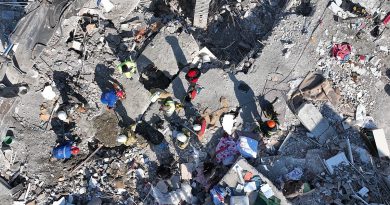The UK’s Plan to Resettle Migrants in Rwanda Should Go On
Madi Field
Staff Writer
British Home Secretary Suella Braverman visited Rwanda earlier this March, according to CNN. In light of this visit, it seems that the British government is one step closer to beginning its new controversial immigration scheme: resettling select asylum seekers in the small East African nation of Rwanda.
The plan, formulated by former Prime Minister Boris Johnson last April, seeks to resettle successful asylum applicants who arrived in Britain illegally by boat. CNN explains that the initial rollout is small considering the 46,000 people estimated to have arrived by small boats in 2022; over five years, 1000 successful asylum seekers, mostly young men, will be sent to Rwanda while their asylum claims are processed. According to the Associated Press, the British government has agreed to pay the Rwandan government 120 million pounds (or $145 million) in exchange for guaranteed housing, education, and vocational training. Additionally, Rwanda can send its most vulnerable asylum seekers to the UK.
The bill has been packaged by PM Sunak’s new conservative government as a way to deter deadly human smuggling and encourage refugees to avoid adding to a backlogged British asylum system, explains Reuters.
The scheme was immediately challenged in several courts, including the European Court of Human Rights, but according to the Associated Press, the British High Court ruled the plan legal in December. A group of asylum-seekers were allowed to appeal, but should their appeal be unsuccessful, the government has communicated a desire to begin the plan immediately.
The plan, criticized by broad sectors of British society is challenged on two grounds; that the plan violates international law, and that Rwanda would be an unsafe environment. Although ruled legal in December, the bill remains challenged by the UN, refugee groups, and other entities. According to the EU Migration Law Blog, these groups allege it violates British obligations under the 1951 Refugee Convention, the ICCPR, and the ECHR, and others.
The second claim, that Rwanda is an unsafe environment for people already fleeing brutal persecution, revolves around Rwanda’s entrenched president, Paul Kagame. Although Kagame is heralded as having brought peace and stability to Rwanda, he has done so at the cost of free speech and opposition. Additionally, Al Jazeera reports that Kagame and his government are alleged to have backed a brutal Tutsi rebel group, M23, in the neighboring DRC.
Yet, the positives of the plan are compelling. Rwanda, continuously healing in the aftermath of the genocide, is gradually improving its peace and stability. It sits at 72 on the 2022 Global Peace Index; the United States sits at 129. Women own more than 50 percent of seats in Parliament, and opposition groups share in governance. According to the Guardian, the March 25 clemency release of Paul Rusesabagina, the hotelier who saved hundreds of lives in the Rwandan Genocide and was later convicted in September 2021 on sham terrorist charges, indicates that Kagame is increasingly tolerant of dissent.
Before COVID-19, the country’s economy grew upwards of 7% a year, enabling the “substantial improvements in living standards” Rwanda has since enjoyed, reports the World Bank. And perhaps most importantly, the country has played the eager host to thousands of refugees from conflict-ridden countries across Africa, indicating a special societal openness to refugees that will all but ensure their acceptance.
As government spokeswoman Yolande Makolo told the AP, living in Rwanda is not “a punishment”, and efforts by organizations to paint it as such seem disingenuous. Asylum seekers fleeing violence and repression will find a quiet home and plenty of opportunity in Rwanda, aided, of course, by the British government.
Sunak’s plan arises from widespread and legitimate societal frustration towards disordered migration. Although ugly, it is important to not invalidate these sentiments, and respect the British people and their representatives. The right to asylum is an essential part of our international institutions, but so is state sovereignty. As such, it seems there is no reason why the plan, which, despite its strangeness, seems beneficial to Rwanda, Britain, and most importantly the asylum seekers, should not commence.
Moreover, this particular scandal is almost inconsequential when considering the scale of not only migration to Britain, but migration around the world in the coming century. Today, more than one percent of people are displaced around the world, and that number will only rise as climate change, economics, education, gender equality, conflict, poverty traps, violence, conflict, and other issues push people from their homes. These problems will not go away soon, and unless Britain and the rest of the West takes seriously the root causes of displacement, and the role that they have historically played in it, they will find themselves increasingly angered by the growing numbers of truly desperate and needy people at its borders. While the world has attempted to abandon multilateral cooperation as of late, the complex problems of the twenty-first century necessitate creative solutions such as this one, albeit on a grander scale.


